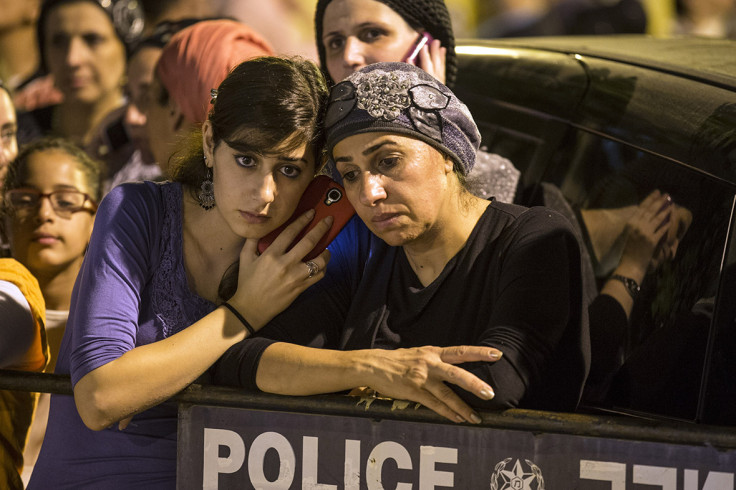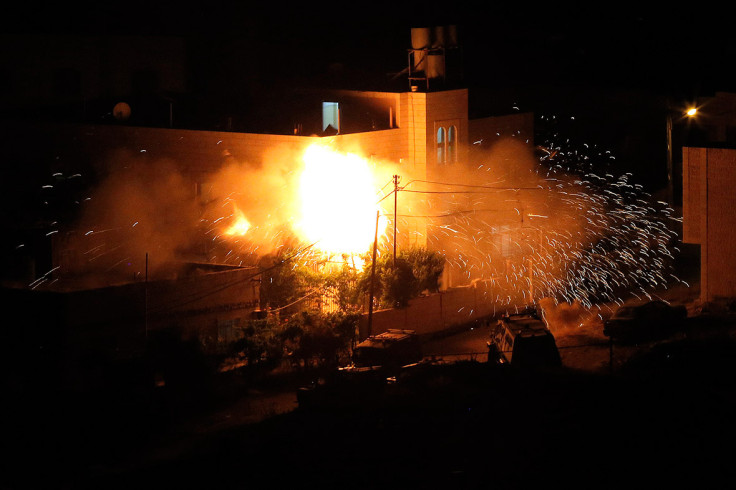Israel After the Teenager Murders: One Nation, One God, One Love


On Tuesday evening, as thousands of Israelis were attending the funerals of Eyal Yifrah, Gil-ad Shaar and Naftali Frenkel, the three Israeli teenagers found murdered in the West Bank on Monday, I happened to be attending the unrelated funeral of a close friend's stepfather. As the deceased man's daughter rose to give a moving eulogy, her first words alluded to those other funerals taking place.
Even a family grieving for the loss of a father spared a moment to share in the grief of the nation for the loss of the three boys. This was a potent symbol of the extent to which the entire country felt personally about what had happened.
Over the past three weeks Israelis have got to know the three teenagers names and faces. We have seen videos of them playing games with friends and leading songs in their youth movements. And we have got to know the faces and voices of their extraordinarily courageous mothers, as they were interviewed on television, and even flew to Geneva to address the UN Human Rights Council.
Though Israeli security services assessed behind closed doors that the three had most likely been killed soon after they were taken, they did not know for sure. They kept up the hunt on the assumption that they may still be alive. The safe return of captive soldier Gilad Shalit in 2011 after five years in Hamas captivity, helped buoy public hopes for a positive outcome.
The three boys were all from religiously observant, modern-Orthodox communities, and their families called on the population to pray for their sons. In prayer services up and down the country, special psalms were read in supplication for their safe return.
Israel is a small and intimate country. Its population is no bigger than that of London. It is divided by innumerable rifts along religious, ideological, and socio-economic lines. There have been questions raised about why they were apparently hitchhiking in the West Bank against the constant advice of the authorities. And lying in the background is the intense political controversy of whether Israelis should even be in the West Bank to begin with.
We need to speak in one language. We need to rediscover the paths that connect all of us. If, in fact, we seek to punish our enemies, there is no greater punishment than for them to behold this sight and to see that nothing can divide us
But far more prominent at such moments is the sense of common identity that binds all Israelis. The perpetrators did not care if these were settlers or not, or were soldiers or not. They wanted to kill Jews. These ones happened to be three kids on their way home from school for the weekend. The instinct for most Israelis is: those fresh faces could be our sons, or brothers, or friends.
So when the news came that the three had been found shot dead, the entire country felt real sadness and revulsion. The publication of the recording of one of the teens, phoning the police and whispering down the line, "they kidnapped me" before the sounds of his captors can be heard barking orders, only makes the nightmare more tangible for everyone.
Not all the sentiments to pour out in Israel reflect well on those that have expressed them. For some the paramount emotion is anger, and the demand is for retribution, with social media a particular forum for venting. Some less responsible Israeli politicians have fuelled this feeling with their rhetoric. Israeli police arrested 50 right-wing Jewish extremists who went on the rampage after the funeral, attacking Arabs in East Jerusalem. The discovery of an Arab youth killed in Jerusalem on Wednesday morning has raised fears that it may be a revenge attack.
But more responsible voices have sought to focus the intense public emotion away from anger to solidarity and unity.
Israel's Finance Minister Yair Lapid, until recently a popular TV anchor, journalist and writer articulated this best. Giving a eulogy at the funeral service of Gilad Shaer he said, "We don't need anger; we don't need yet another division among us; we don't need a competition over whose rage is holier or whose hate is purer. Rage is not holy. Hate can never be pure.
"I can certainly understand all those demanding revenge; how could I not understand when I share those same sentiments – when each and every one of us feels this way. But today, at this funeral, in the presence of this family, we need love. We need to speak in one language. We need to rediscover the paths that connect all of us. If, in fact, we seek to punish our enemies, there is no greater punishment than for them to behold this sight and to see that nothing can divide us."
Dr. Toby Greene is director of research for the Britain Israel Communications and Research Centre (BICOM) and lives in Israel. His book, 'Blair, Labour and Palestine: Conflicting Views on Middle East Peace After 9/11' is published by Bloomsbury Academic.
© Copyright IBTimes 2025. All rights reserved.



















